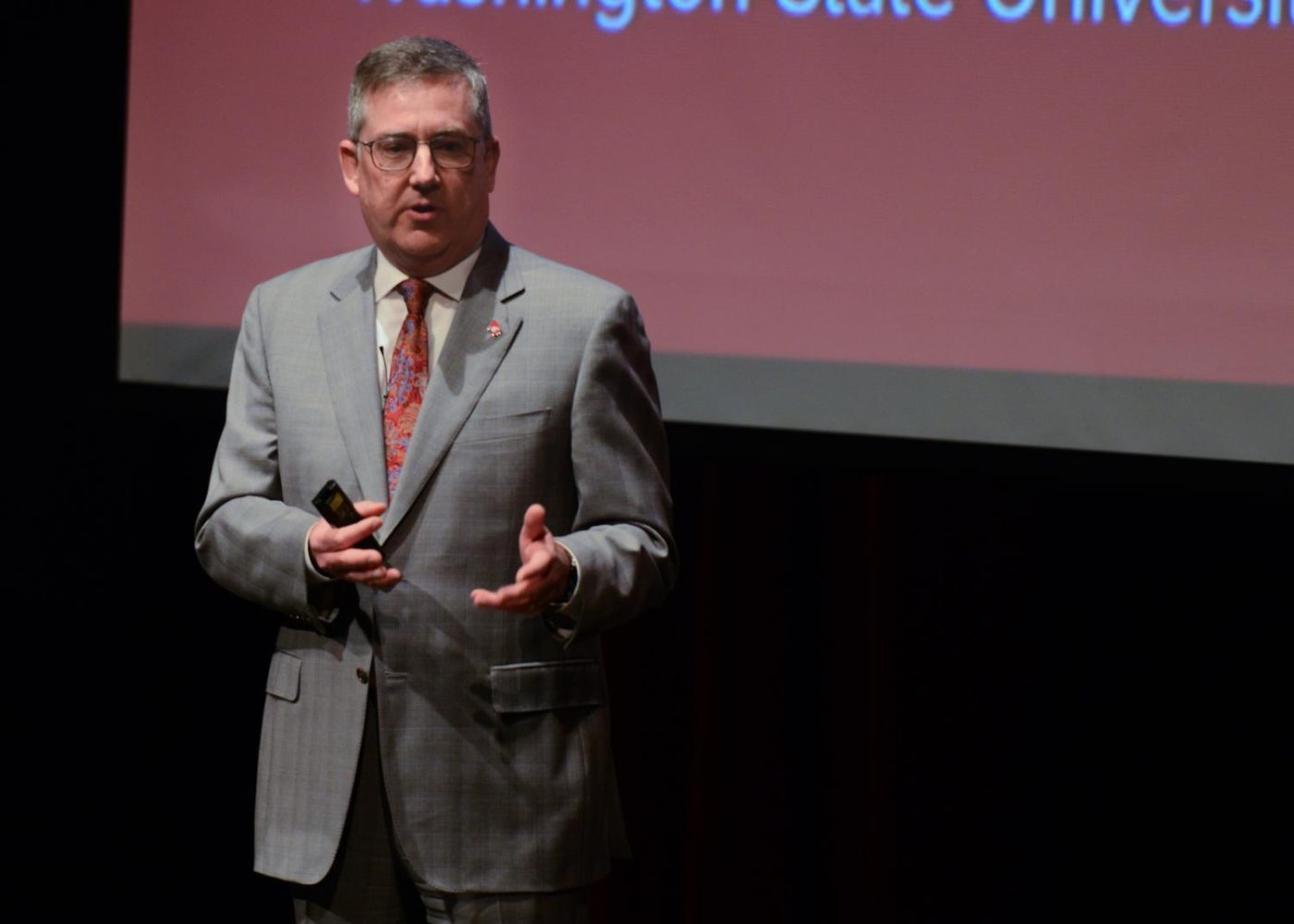Schulz delivers second State of the University
University president highlighted facilities, athletics, research
ADAM JACKSON | THE DAILY EVERGREEN
WSU President Kirk Schulz discusses “Drive to 25.” Audience members asked for comment on sexual assault and a lack of attention given to the humanities.
March 28, 2018
At his second State of the University Address, WSU President Kirk Schulz emphasized steps the school has made toward becoming a top-25 research institution.
“We are Washington State University,” Schulz said. “We always need something to aspire to.”
Schulz specifically pointed to new research facilities and innovations and thanked faculty, staff and students for their contributions to the university.
He said the goal of the “Drive to 25” is to raise WSU’s visibility both nationally and internationally. Schulz said the initiative provides the university incentive to overcome obstacles.
“To me, when times are a little challenging,” Schulz said, “you need to have an inspirational goal out there.”
He also said fall sports have been more successful than ever before. Learfield Directors’ Cup, which measures the success of collegiate athletics, has ranked WSU as no. 24 nationally.
“Athletics is our front door through the university,” Schulz said.
Although student-athletes perform well on the field, he said, there should be a focus on the academic side of their university experience. Schulz said he hopes new Athletic Director Patrick Chun will work on this.
He said he was impressed by new facilities, like the Chinook Student Center, the Elson S. Floyd Cultural Center and the SPARK: Academic Innovation Hub.
Furthermore, Schulz said, he is looking forward to a new $114 million construction plan using money allocated by the state government. The Board of Regents approved designs to add a building to the Global Animal Health facility and a new Plant Sciences Building.
Thanking faculty, Schulz highlighted nine professors in different fields. He said these individuals have lead the university in the right direction, through their innovation and support of students.
“When we talk about our transformative education,” Schulz said, “it’s our faculty.”
Following his speech, Schulz opened the floor to questions from the audience.
Amy Mazur, a professor for the School of Politics, Philosophy and Public Affairs, said she was upset that the school was notrepresented in the presentation, but also at the loss of funding for its faculty. They have been reduced from 17 to nine full-time professors. Her question for Schulz was about whether “Drive to 25” could happen without sustaining all of the WSU departments.
Schulz said cuts to the department were inevitable, and he hopes the university will be out of debt in three years.
A freshman student said she was concerned with how WSU handles sexual assault on campus. She said she and her friends feel unsafe and asked about policies regarding signing athletes with previous sexual assault or domestic violence charges.
Schulz said student athletes are underage, which prevents security information about charges from being available to recruiters. WSU is planning to provide additional information to improve student understanding of campus safety, he said, adding that these issues require dialogue and a community effort.
“This is a journey,” Schulz said. “It may be rocky, but we’ll keep at it.”









